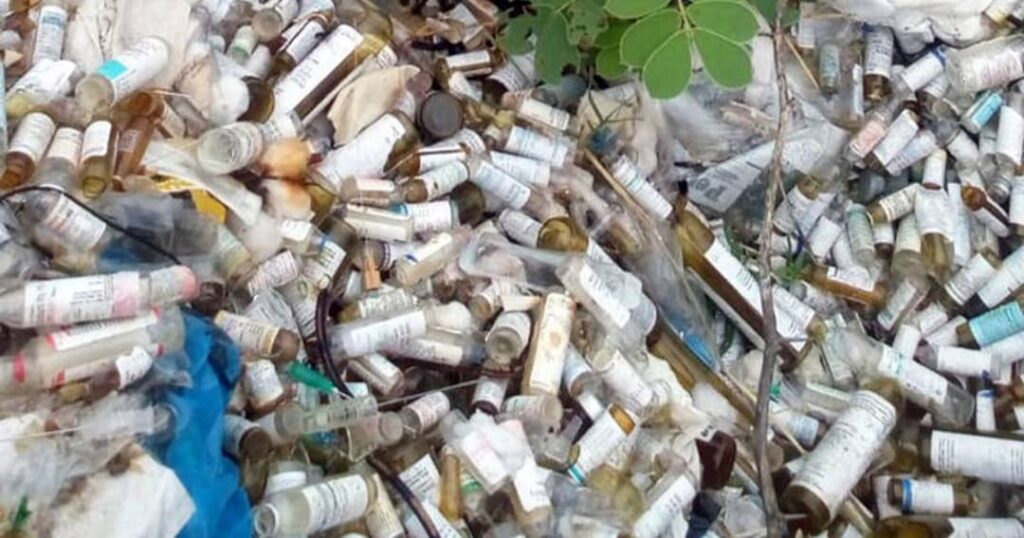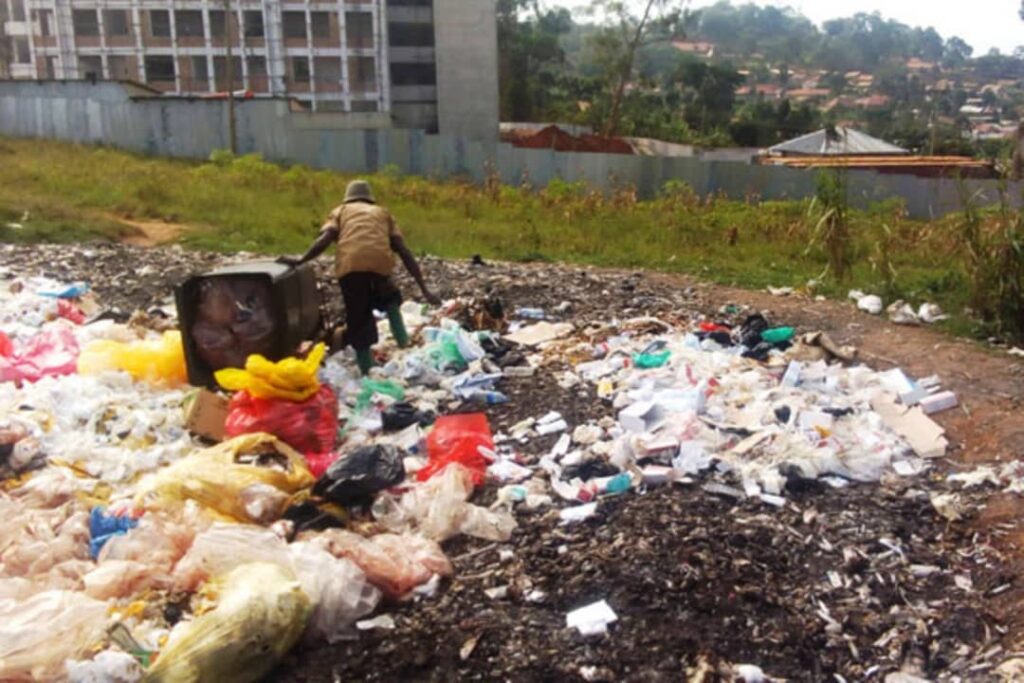Health care waste management is a serious environmental problem. Hospitals in Buea, Cameroon, are battling with poor waste management and thus have had adverse effects on the patients, visitors and staffs. Waste produced in these hospitals range from plastic, hazardous, medical, pharmaceutical, infectious, solid, food and general waste.
This has results from inadequate storage facility, improper disposal and lack of waste segregation. This poor waste disposal has led to the diseases in the hospital. The hospital is supposed to be a place of treatment and not a place of disease transmission. Diseases such as malaria are very common in hospitals in Buea. When waste is not properly managed, it generates insects and bacteria such as mosquito. This then bites patients, visitors and staff leading to malaria.

Worldwide, an estimated 5.2million people succumb annually to illness, resulting from unmanaged medical waste. Four (4) out of the 5.2 million are children. These children are affected with Candida, (which deals with long stay in the hospital), skin infections and difficulties in breathing due to the stench from the pile of dirt, tetanus, diarrhea and cough.
15 years old Stephen was a victim of illnesses related to waste disposal in hospitals. He was admitted in the hospital for cough. In due time, he was tested positive for malaria. This was confirmed by the doctor that, before Stephen came to the hospital, he was malaria free. But due to poor waste disposal around his ward, it generated flies and mosquitoes. His admission to the hospital was extended. The situation got worst, as it was suspected that he had difficulties with respiration due to the smell that emanated from the waste in the hospital.
Within a period of one month, Stephen was taken to the intensive care Unit. He had breathing difficulties and his condition grew critical. At first, the cause of his sudden critical condition was unknown. However, after some findings, it was discovered that the poor waste disposal close to his ward made his condition critical. Coupled with the health effects, these plastic wastes also block the drainage systems of these hospitals, making it difficult for water to flow easily. This therefore, leads to standing water, a nasty environment, attraction to mosquitoes and pests an thus, illnesses.

This is the reason why there is need to construct better mechanisms that can curb waste disposal in hospitals. Each waste stream requires a specific storage handling and disposal methods. This can be done by allocating bins with colors that are designated for a particular waste. There is also need to educate staff and patients on proper waste disposal and management. A comprehensive training should be organized to ensure that all people adhere to the waste management protocols and regulatory requirement.
Hospital management can sign contracts with recycling companies to always recycle plastic waste in to buckets, bowls and other gifts that can be given to resilient patients and staff. It is also imperative that, hospitals work in close hand with non-governmental organizations such as the Berine and Bokwe Foundation, that they can engage in the voluntary cleaning of these hospitals. Berine Bokwe Foundation also accepts funding for Water, Hygiene and Sanitation project to foster good hygienic conditions in hospitals the prevention of diseases. Since the mxdicxal personels are not always free to carryout cleanup rallys, BEBOF runs and implements projects of such nature to ensure environmental sustainability.
Pictures used are from the following websites; Afrika 21, daily monitor, Decan Herald, and Trash gurl.




